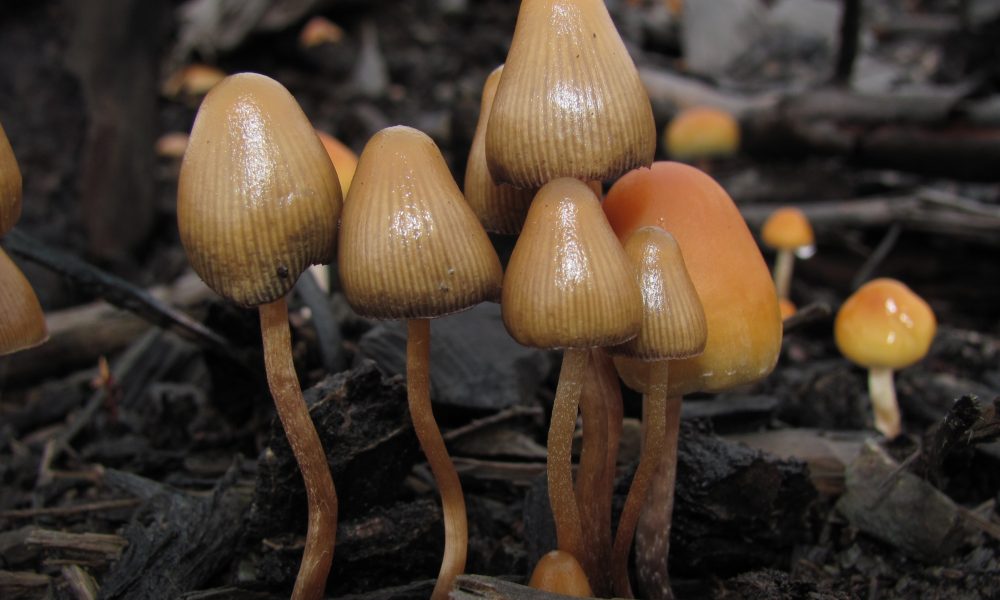Vermont lawmakers last week began consideration of a bill that would legalize psilocybin in the state and establish a work group on how to further regulate psychedelics for therapeutic use.
The Senate Health and Welfare Committee took no immediate action at the hearing, with chair Sen. Ginny Lyons (D) saying the panel would most likely hear further testimony on the proposal either this week or next week.
“S.114 I think may be a bill that has the potential to be acted upon pretty quickly,” Lyons said. “We’ll see what we think about it.”
Sen. Terry Williams (R) asked whether there was any possibility the committee could simply vote immediately on the bill, noting that only a matter of days remain before the state’s crossover deadline, at which point bills must be passed by their originating chamber in order to remain under consideration for the session.
“No, we’ll have time for this, don’t you worry,” Lyons replied. “The key here for me is making sure that the working group is the right working group.”
“We might be able to get some folks from UVM Medical School in the working group,” she added, which would be more of a local option than having experts from Johns Hopkins, as the bill currently prescribes.
Sen. Martine Larocque Gulick (D), the bill’s Senate sponsor and a member of the Health and Welfare Committee, told colleagues that she’s “interested in putting all of the tools we have out on the table to try to solve the problems that we’re facing.”
“This seems like one that is emerging as a possible— something that can help people who are struggling with mental health, with addiction and with PTSD,” she added.
As introduced, the legislation would remove psilocybin from the state’s list of prohibited drugs, effectively legalizing the psychedelic fungi.
It also calls for the establishment of a Psychedelic Therapy Advisory Working Group that would be required to “examine the use of psychedelics to improve physical and mental health and to make recommendations regarding the establishment of a State program” like those that are being implemented in Oregon and Colorado.
On the House side, lawmakers considered a companion bill, H.371, during a House Judiciary Committee hearing last May.
There seemed to be agreement among members about the overall merits of the proposal at the time, but the panel’s chairman said that “we’re not going pass this out this session” because there was not enough floor time left before lawmakers adjourned for the year.
If the legislation becomes law, members of the work group would need to “review the latest research and evidence of the benefits and risks of clinical psychedelic assisted treatment” and look into the “laws and programs of other states that have authorized the use of psychedelics.”
The eight-member working group would consist of lawmakers, researchers, advocates and state officials.
A report would be due to lawmakers by November 15, 2024—a date likely to be pushed back to reflect the proposal’s delay from last session into the current one.
In other drug-related actions this session, Vermont’s House last month passed a bill to legalize and fund safe consumption sites, part of a pilot program aimed at quelling the ongoing epidemic of drug-related deaths. It’s another attempt by lawmakers to allow the facilities following Gov. Phil Scott’s (R) veto of a 2022 measure that would have established a task force to create a plan to open the sites.
Lawmakers in states across the U.S. are gearing up for what has already proved to be an active year for psychedelics reform in 2024.
Last week, for example, an Arizona Senate committee unanimously approved a bipartisan bill that would legalize psilocybin service centers where people could receive the psychedelic in a medically supervised setting.
New York lawmakers also said that a bill to legalize psilocybin-assisted therapy in that state has a “real chance” of passing this year.
An Indiana House committee, meanwhile, approved a Republican-led bill this week that would fund clinical research trials into psilocybin that has already cleared the full Senate.
The New Mexico Senate unanimously passed a bipartisan resolution requesting that state officials research the therapeutic potential of psilocybin and explore the creation of a regulatory framework to provide access to the psychedelic.
An Alaska Senate panel approved a plan to create a state psychedelics task force to recommend licensing and insurance requirements for therapeutic practitioners under federal legalization
Bipartisan California lawmakers also recently introduced a bill to legalize psychedelic service centers where adults 21 and older could access psilocybin, MDMA, mescaline and DMT in a supervised environment with trained facilitators.
A Nevada joint legislative committee held a hearing with expert and public testimony on the therapeutic potential of substances like psilocybin last month. Law enforcement representatives also shared their concerns around legalization—but there was notable acknowledgement that some reforms should be enacted, including possible rescheduling.
The governor of Massachusetts recently promoted the testimony of activists who spoke in favor of her veterans-focused bill that would, in part, create a psychedelics work group to study the therapeutic potential of substances such as psilocybin.
A Missouri House committee considered a proposal last month that would legalize the medical use of psilocybin in the state and mandate clinical trials exploring the therapeutic potential of the psychedelic.
FDA Grants Priority Review Of MDMA-Assisted Therapy For PTSD, Psychedelics Drug Development Company Says
Photo courtesy of Wikimedia/Mushroom Observer.
Read the full article here









